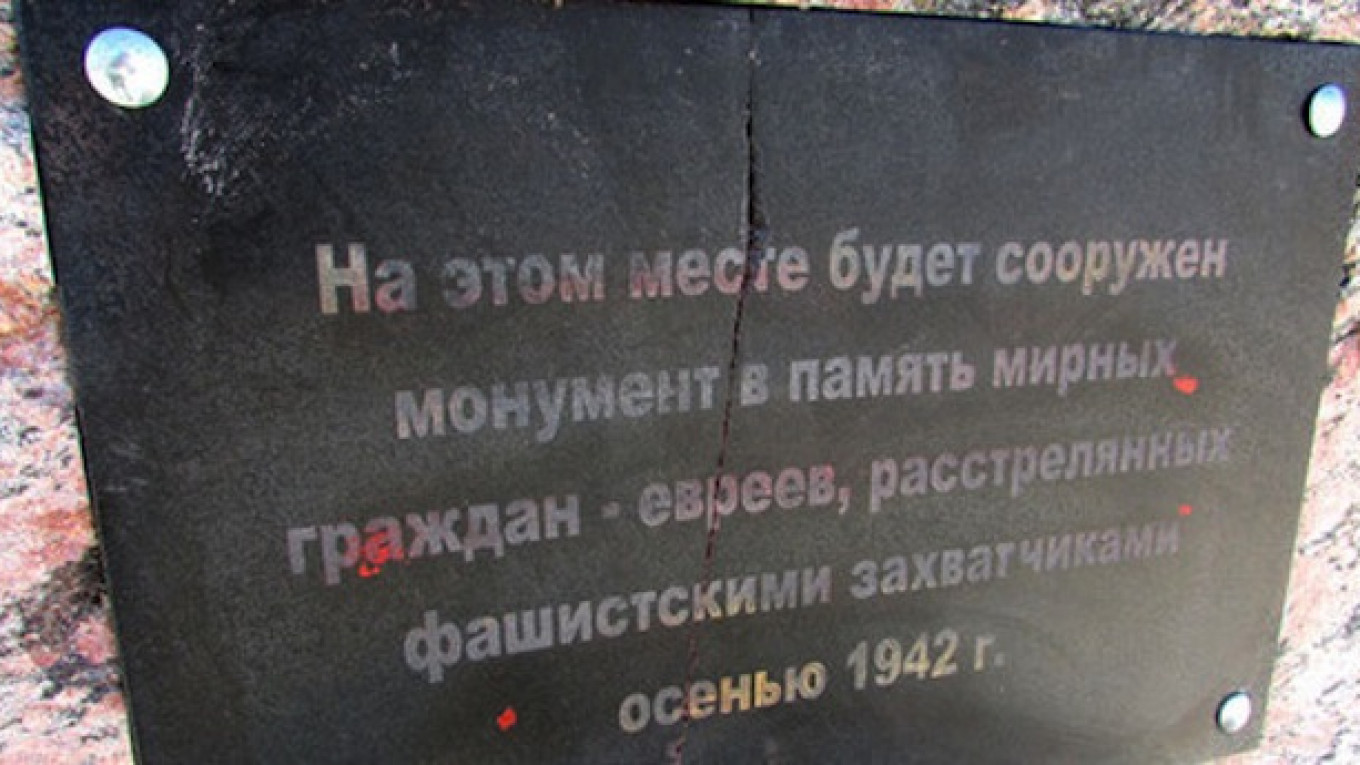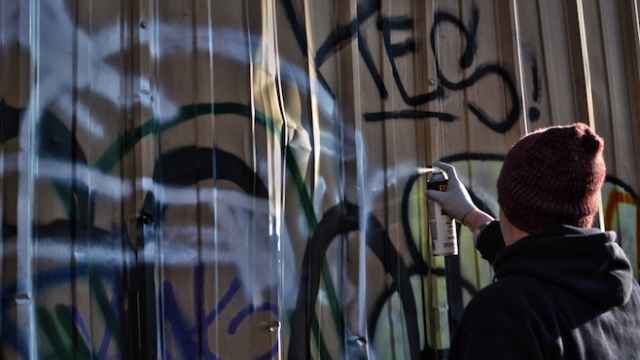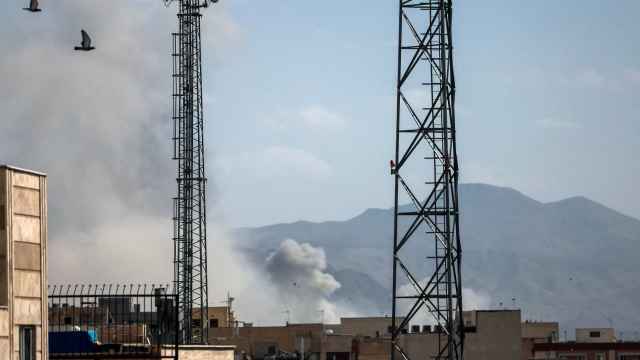Vandals have painted a swastika on a memorial to Holocaust victims killed during World War II in Volgograd, in an attack that one Jewish organization said was inspired by a congress of far-right parties held in the country this week.
The swastika, accompanied by crude text, has been removed, and police are searching for the vandals, the Interior Ministry said Monday, according to Russian media reports.
Leaders of Russian Jewish organizations denounced the vandalism.
"When living people are insulted, that can be explained away by a lack of upbringing. But when the dead are insulted — words fail me," Volgograd rabbi Zalman Ioffe was quoted as saying Monday by the Kavkazsky Uzel news site. "The memory of people who died a horribly death has been insulted. This is sacrilege that cannot be forgiven or excused."
The memorial in question was installed in 2007 to commemorate hundreds of Jews killed in the Volgograd area by the Nazis during World War II. A larger monument is expected to be built at a later date, and the current structure consists of a marble plaque reading: "On this spot, a monument will be erected to honor the memory of peaceful citizens — Jews who were shot by fascist invaders in the fall of 1942."
The monument has been vandalized a number of times in the past few years, Kavkazsky Uzel reported.
Vandals tried to scrape the word "Jews" off the memorial plaque just two months after it was installed, the head of the Volgograd Jewish Community Center, Yael Ioffe, was saying at the time. The perpetrators were not caught, Ioffe told Kavkazsky Uzel, and another attack against the monument followed the year.
The Russian Jewish Congress has linked the latest attack to a high-level conference of ultranationalist leaders held last Sunday in St. Petersburg — a city which, like Volgograd, is seen in Russia as a symbol of the suffering and heroism in resisting the Nazis during the war.
St. Petersburg, where hundreds of thousands of people died during a Nazi siege, saw leaders of far-right parties from Europe and Russia gather this weekend for an International Russian Conservative Forum, praising Russia as a haven for the world's marginalized parties.
"The history of our country shows that all outbreaks of anti-Semitism in Russia happened only during the times when the ruling powers permitted Judeophobes to openly show their hatred of Jews," the Russian Jewish Congress said in an online statement. "Impunity has been interpreted as a call to action."
"This is what is happening now, when during this anniversary year of the victory [in World War II], in a city that lost 900,000 of its inhabitants during the siege, a congress is held of the most odious neo-Nazis and ultra-right radicals of Europe," the group said. "Around the regions of our country, echoes of that forum are already being heard. Anti-Semites are once again testing the authorities to see how much is permitted."
Neighborhoods in and around Volgograd — the site of major battles during World War II — in the past few years have also seen swastikas painted on houses, posters praising Hitler pasted on bus stops, and young men wearing swastikas marching during an Easter-time procession, state-run Rossiiskaya Gazeta reported.
Alexander Boroda, the president of the Federation of Jewish Communities of Russia, said the vandalism would not end unless the authorities ensure "real criminal punishment" for perpetrators, the Interfax news agency reported.
"It is time to understand that those beings who are allowing themselves to scorn at the memory of the massacred will not stop this outrage simply because they are being reproached," Boroda was quoted as saying.
Contact the author at [email protected]
A Message from The Moscow Times:
Dear readers,
We are facing unprecedented challenges. Russia's Prosecutor General's Office has designated The Moscow Times as an "undesirable" organization, criminalizing our work and putting our staff at risk of prosecution. This follows our earlier unjust labeling as a "foreign agent."
These actions are direct attempts to silence independent journalism in Russia. The authorities claim our work "discredits the decisions of the Russian leadership." We see things differently: we strive to provide accurate, unbiased reporting on Russia.
We, the journalists of The Moscow Times, refuse to be silenced. But to continue our work, we need your help.
Your support, no matter how small, makes a world of difference. If you can, please support us monthly starting from just $2. It's quick to set up, and every contribution makes a significant impact.
By supporting The Moscow Times, you're defending open, independent journalism in the face of repression. Thank you for standing with us.
Remind me later.






